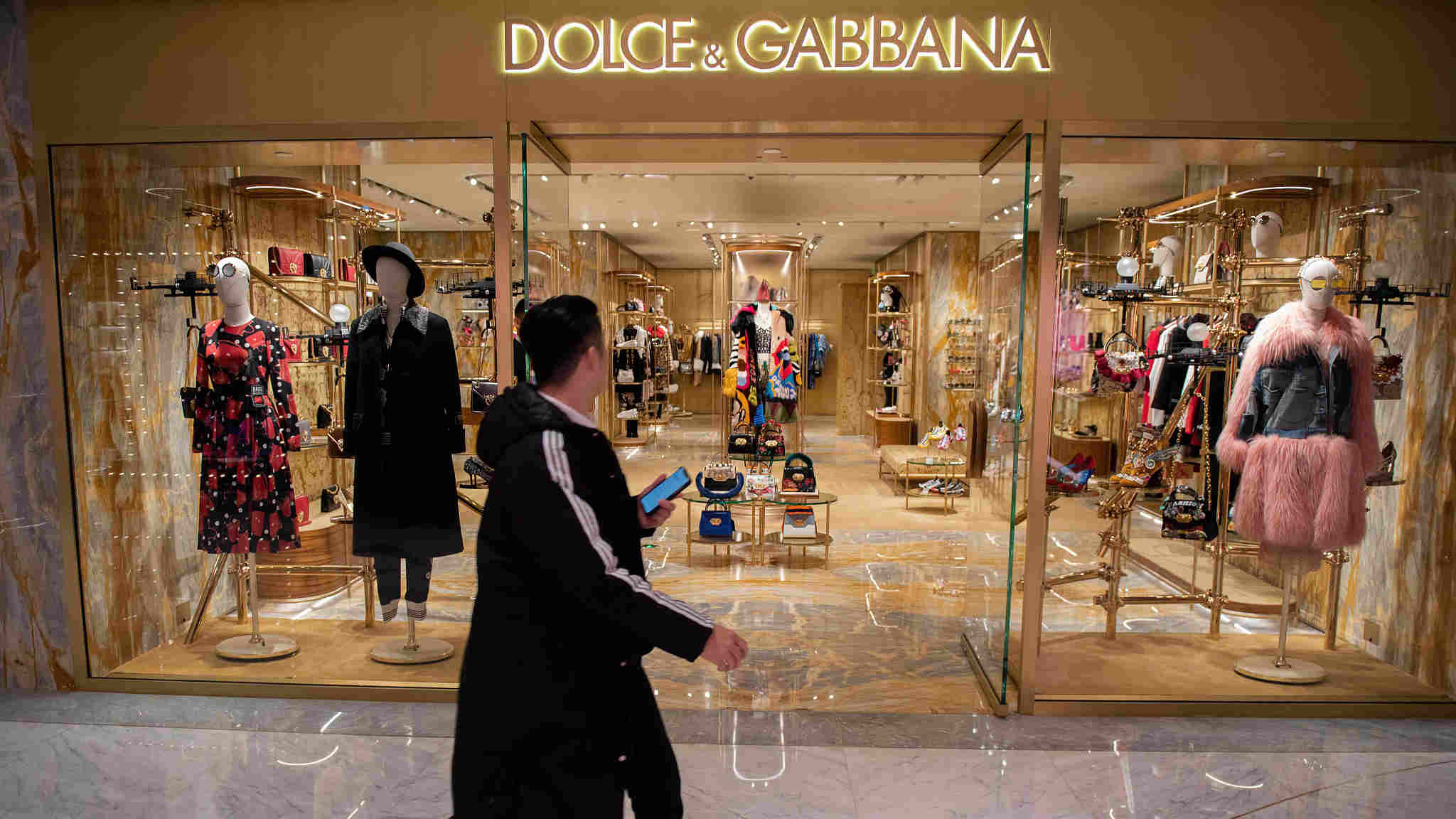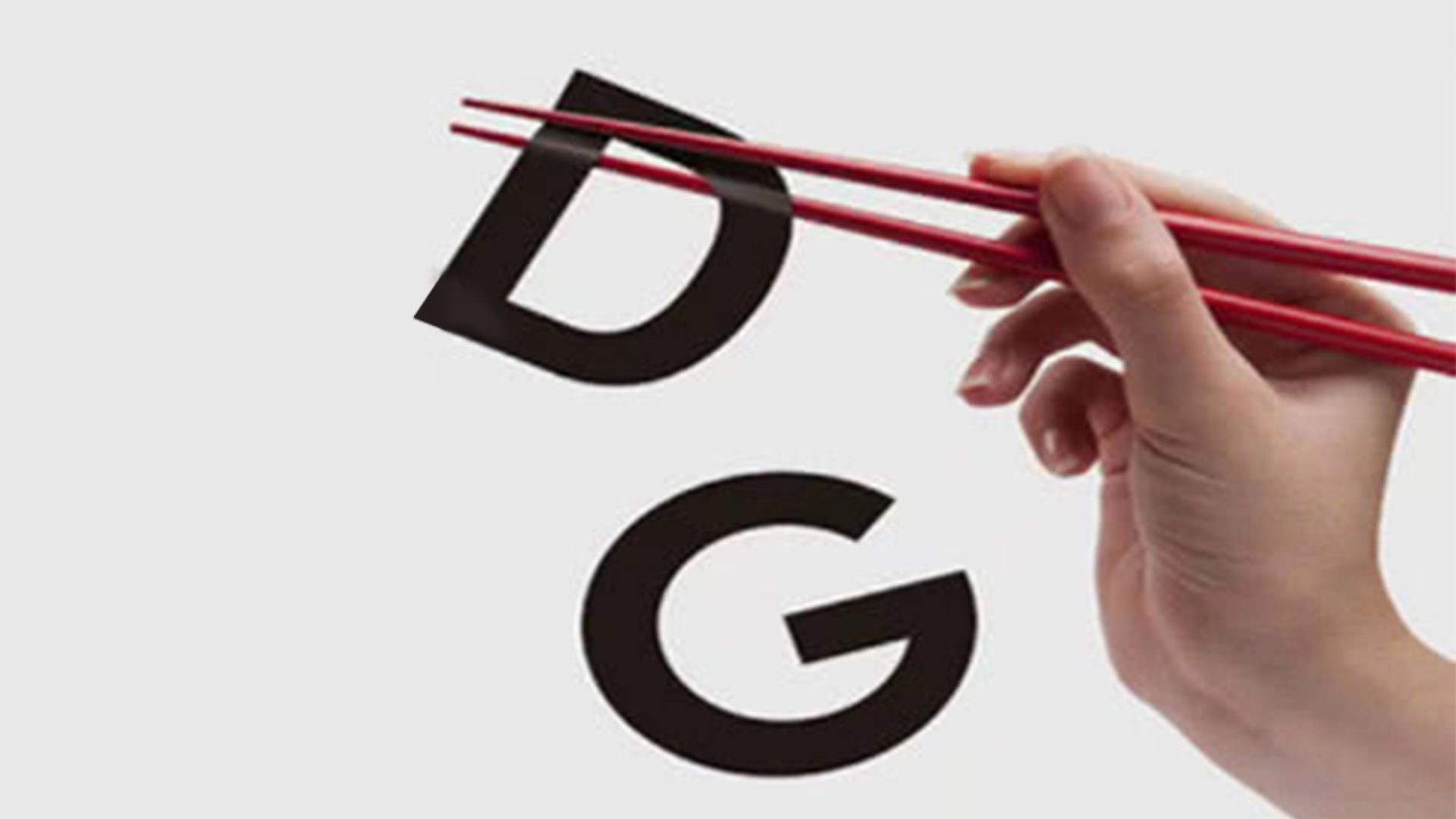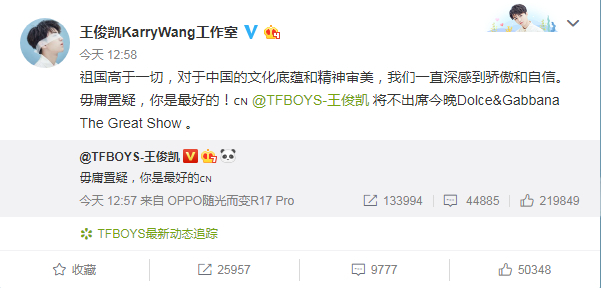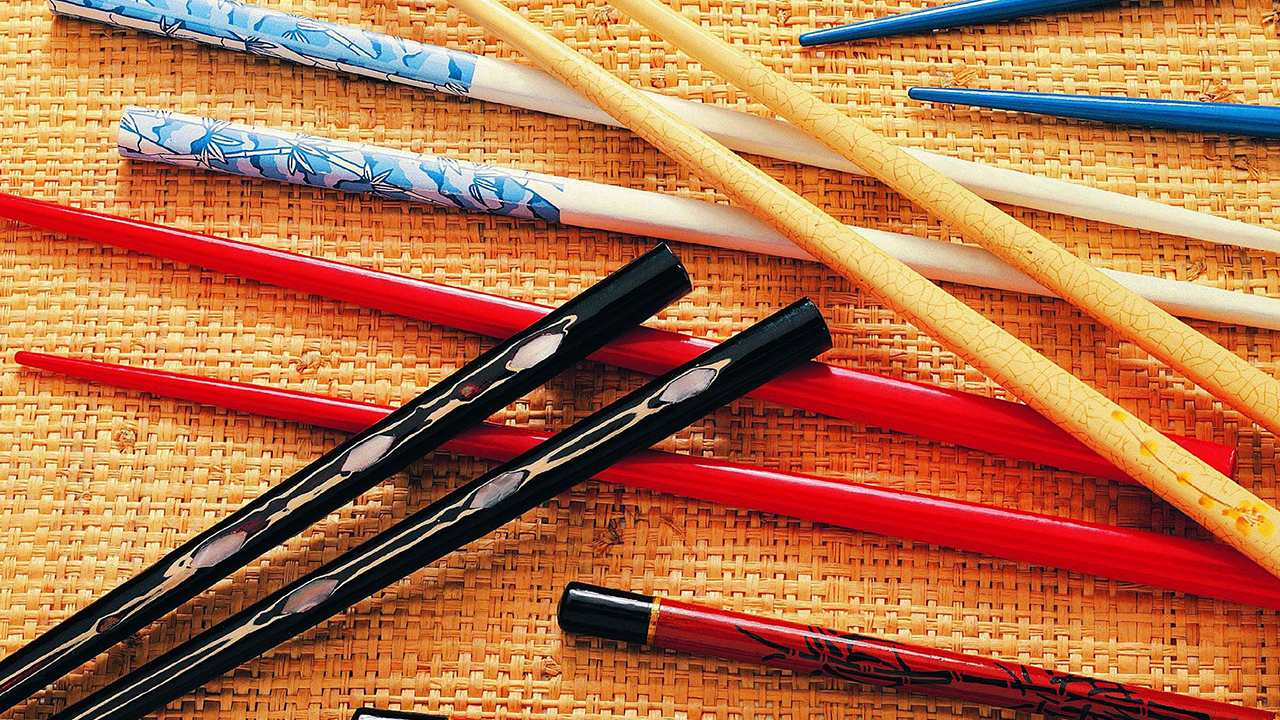
Opinions
23:05, 23-Nov-2018
Opinion: In what way should China say no to D&G?
Updated
22:02, 26-Nov-2018
Zhu Zheng

Editor's note: Zhu Zheng is an Assistant Professor at the Faculty of Law with China University of Political Science and Law. The article reflects the author's opinion, and not necessarily the views of CGTN.
Foreign companies and their luxury brands are increasingly welcome in China, but their derogatory comments are not.
The outcry was fostered when the Italian fashion brand Dolce & Gabbana posted on its Chinese Weibo account a clip that meant to bring light to its catwalk show “DG Loves China,” which was intended to be staged in Shanghai on Wednesday.
Featuring an Asian-looking woman wearing the brand's dress and jewelry giggling as she attempts to eat a cannoli with chopsticks, the video went along with some cliché ambient music, and a male narrator saying things such as: “It's still way too big for you, isn't it?”
The ad was called out by a majority of viewers in China as trivializing China's identity and demonizing the Chinese people. It not only included small and single-eyelid Asian eyes but also deliberately called Chinese chopsticks “small-stickers” and Italian foods “big” and “great.” Even worse, the company mocked its target demographic as a tired and false stereotype of people lacking virtue in understanding how to eat foreign foods.
01:49

Criticized by Weibo users as being crass and patronizing, the clip stoked even greater anger when the screenshot of a dialogue between Mr. Stefano Gabbana and other users was disclosed, in which, Mr. Gabbana, in a fit of rage, even used disparaging remarks to describe China.
While the ad, together with the comments and Instagram information, were quickly taken down, the anger only grew. It forced the Italian company to issue a statement in support of China and an explanation claiming that both the company and its designer's accounts had been hacked.
However, it was of little use in stopping the outrage. Some Chinese celebrities who had been billed to attend the runway show withdrew, and most social media users called for a boycott of the brand. Big names, such as Zhang Ziyi, believed that the company was actually picking online feuds and D&G was asking for it – most audiences agreed that the government should condemn the company with a heavy hand.
Apparently, there are some hidden points behind the aforementioned incident that are worth analyzing here.
To start, the online uproar has indicated that no matter what, some cultural genes embedded in Chinese people's blood have contributed to a sense of Chinese identity, which should not be ignored or ridiculed.
And this remains true for young people in China. For instance, with the line-up comprising mostly Instagram stars, the D&G show was originally targeting youngsters, particularly millennials. However, the young generation in China appears to be as patriotic as their forefathers – if not more so, as most of them turned their back at the D&G show. It indicates that the Chinese people don't take “anti-China” remarks lightly.

Chinese singer and actor Wang Junkai stated that he will not be present at the show before the show was canceled. /Screenshot
Chinese singer and actor Wang Junkai stated that he will not be present at the show before the show was canceled. /Screenshot
However, in what way should we deal with harassment and insults? As some commentators rightly pointed out, while it is not wrong for the Chinese Internet users to lash out against the bitter words and deeds, the public, especially the media, should remain calm. After all, strongly worded expression will do nothing but exacerbate the upset feelings, and even tarnish the nation's civilized image in the end.
Of course, we should stand up for ourselves in the face of unfair accusations, too often when we fight back hateful words in a similar way, negative feelings only increase. Consequently some philosophies such as Stoicism and Buddhism advise people not to take offense too easily, and simply respond to bitter words with nothing more than a raised eyebrow.
However, for the case at hand, this suggestion is way too ideal - sitting back and allowing the foreign company to insult us repeatedly is totally unacceptable. But that does not amount to saying we should strike back by fighting the same way.
We can either fight back in a humorous way or express our stance in a subtler and wiser manner.
For example, one CCTV footage that has been well received clearly voiced that chopsticks are not merely utensils, but linked with a range of cultural symbols, something in relation to taking care of children, holding respect for the elders, and showing compassion for others. The video clearly conveyed the message that mocking such a cultural sign would cause distress to the whole nation.
02:03

As a matter of fact, in the face of online uproar, the bosses of D&G have already made an official apology - apologizing intentionally in Chinese, the company has thrown itself at the mercy of the Chinese people, and it is up to the Chinese people to decide the brand's future.
It would be better for the people rather than the authority to decide on a case like this. As Chinese Foreign Ministry spokesman clarified today, in essence, it is not a diplomatic matter, so that the government should not step in. At the end of the day, companies that are not wary of their words and deeds will be ousted by the people.
China should say no to anti-China views, but it is the Chinese people who should have the final say, and perhaps they do not have to say it in an excessive and furious way.
(If you want to contribute and have specific expertise, please contact us at opinions@cgtn.com)

SITEMAP
Copyright © 2018 CGTN. Beijing ICP prepared NO.16065310-3
Copyright © 2018 CGTN. Beijing ICP prepared NO.16065310-3